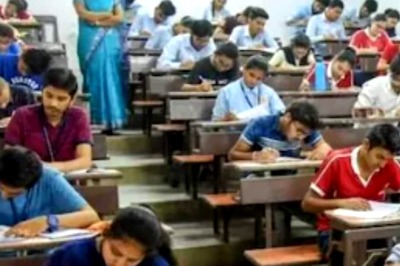
views
Top telecom companies are battling out the AGR (Adjusted Gross Revenue) dues payment issue in public. While Bharti Airtel and Vodafone Idea are seeking the support of the government and lobbying with a prominent industry lobby, Cellular Operators Association of India (COAI), for a bailout, their main competitor, Reliance Jio, has taken on the COAI alleging bias in the matter.
In short, the industry’s top companies have locked horns in public on the definition and scope of revenue sharing with the government as per an earlier agreed policy.
The AGR issue isn’t new. The whole debate dates back to the time of the 1999 telecom policy that witnessed a major shift from the policy of government charging a fixed license fee from the telecom service providers to a newly-agreed revenue sharing basis system that saw telcos enjoying less financial stress compared with the earlier regime.
In its recent ruling, the Supreme Court had noted that the telcos had agreed to the conditions set by the new revenue sharing agreement regime and this proved to be a financial booster to their books.
The problems started when telcos disputed the structure and composition of the new AGR formula and began contesting it legally and started engaging with regulators. One must note that even when telcos stopped paying the share under the AGR and litigation began, the industry’s gross revenue was growing rapidly between 2004 and 2015 from Rs 4,855 crore in the financial year 2004 to Rs 2.3 lakh crore in the financial year 2015.
Telcos have been making huge profits through rapid expansion and even from non-core activities. Bharti Airtel and Vodafone India, the two prominent players, also witnessed a hike in their revenues and presence. While Bharti Airtel got listed on February 18, 2002, Vodafone merged with Idea last year and changed its name to Vodafone Idea.
The AGR issue evolved over the years and the dues continued to mount. Right now, the telcos are staring at the immense financial burden that can deal a body blow to their finances. As per the definition of AGR by the Department of Telecommunications (DoT) that has been upheld by the Supreme Court, the telecom companies will have to pay around Rs 92,000 crore to the government in the next few months. Much of the hit will be on Airtel and Vodafone compared with the competition.
From a shareholder perspective, one critical question is this: Claims aside, why did telcos not make provisions on the growing dues over years? Why were shareholders kept in the dark about the potential impact on their books?
COAs Rajendra Kumar Joshi, a former joint advisor in the Telecom Regulatory Authority of India (in finance and economic analysis division), argues in his piece, “Telcos, however, in their own imagination were expecting a favourable judgment despite the fact that the top court had made it very clear in its judgments while dealing with a similar case in 2010 and 2011 itself. They have not even made provisions as per the spirit of accounting standards. The top court’s remarks are very clear that the default was bad in intention and in law.”
Arguably, telcos were riding the boom period and enjoying profits without foreseeing the possibility of losing out in the court battle on the AGR issue and presumed themselves as ‘too-big-to-fail’ companies.
It is not that telcos didn’t understand the nuances of the revenue sharing agreement even as they were disputing various forms of revenues such as discounts, commissions, prepaid vouchers, goodwill waiver, etc. In its ruling, the Supreme Court has rejected their claims noting that “parties understood right from the beginning that the gross revenue does not exclude discounts, commissions, rebate etc. and specific challenge made to the same had not been accepted in 2011. Now once again by the circuitous method, impermissible attempt has been made to rewrite the definition of gross revenue.”
It is surprising as to why Vodafone and Bharti Airtel, the two major companies that are hit by the ruling, did not care to make provisions on the potential impact of the AGR payout and thereby keep shareholders and regulators in the dark. Undoubtedly, the Supreme Court order is a big jolt to the industry saddled with Rs 7 lakh crore debt. Understandably, this will break the back of the already stressed telecom sector — the court held that not only the original dues, but even the principal interest and penalties on delayed payments would also be payable. But, the problem is not just about the definition of AGR.
The government and the judiciary seem to be convinced that the telecom companies have been underreporting revenues for long. In 2017, government auditor Comptroller and Auditor General of India (CAG) had tabled a report in Parliament that said six private telecom players understated their revenues by over Rs 61,000 crore, causing a loss of Rs 7,697.62 crore to the exchequer.
There were clear warning signals from CAG. The court has given three months to the telcos to comply with the order. At least now, telcos and their promoters must wake up to the reality and pay up what is due to the government as per the mutually agreed AGR contract. But it is unlikely that the AGR issue would end even there. The telcos will have to do lot of explaining for their failure in making provisions and informing the shareholders about the extent of the likely financial impact.
Disclosure: News18.com is part of Network18 Media & Investment Limited which is owned by Reliance Industries Limited that also owns Reliance Jio

















Comments
0 comment